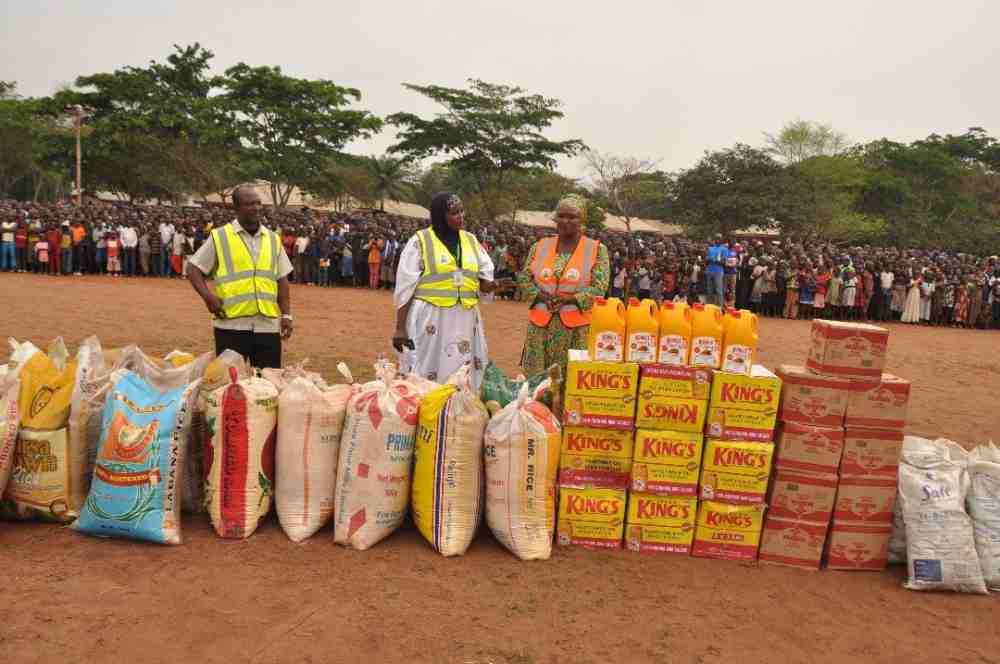The Boko Haram insurgency has displaced and shattered many households in Northeast Nigeria.
It has rendered some residents homeless and jobless but not hopeless. This is more rampant in Borno State.
Over the years, the activities of the insurgents have led to malnutrition, gender based violence and developmental problems among others.
The means of livelihood being the cogent aspect has become a difficult task for many, thereby, making them strive for survival each day.
In the course of making ends meet, some of the IPDs were opportune to have access to palliatives from the relevant authorities.
These palliatives are mostly donated by the government, non-governmental organizations and some philanthropists across the nation.
However, instead of using it as relief materials, the IDPs turned such gesture into business transactions.
The IDPs sell them out once they receive such food items and other means of livelihood that are distributed to them.
Some of them said they sell the items to enable them use the proceeds to take care of other needs.
An interview with some of the buyers of the items indicated that most of them have made it part of them to sell the items.
A buyer of such item told me that IDPs said they sell the items to buy firewood, charcoal and other ingredients to cook.
This act comes with a lot of dangers which are obvious to the society especially that many of the IDPs are facing malnutrition, lack of sanitary materials and medication as they sell out everything at their disposal without a second thought.
It is also obvious that a child who is poorly fed will ever be helpless, irresistible to hunger, coupled with poor growth, brain malfunction or impairment among others.
A report from the United Nations Children Fund (UNICEF) on February 11th 2020 showed the rise in malnutrition over time.
It indicated that 1,115 children had died acute malnutrition in Borno State between January and December 2019 (retrieved from m.guardian.ng/news/1115-children-died-from-acute-malnutrition-in-borno-in-2019-unicef/ on 21/06/2020).
Similarly, The Alliance for International Medical Action (ALIMA) data shows that 3, 0911 children suffering from severe acute malnutrition are admitted in the centre for treatment (retrieved from www.alima-ngo.org/en/nigeria_en on 21/06/2020).
Aside this, a hungry child can venture into misconduct such as robbery and can be susceptible to recruitment in the hands of insurgents once he/she sees that they can dispose anything they have access to meet their immediate need.
A recent encounter with some IDP’s at the Monday Market in Maiduguri indicated that the mattresses which were distributed to some camps were also sold out at the rate of N5000 or N5500 by many IDPs.
However, instead of ending this improper transaction by wisely utilizing the relief materials they get, they kept on booming it despite the outbreak of Corona virus disease (COVID-19) which has paused activities.
One alarming aspect is that COVID-19 is said to attack weak immune system than healthy ones faster. Hence, a starved immune system is said to be a weaker one. This misconduct if not properly managed can affect the development of the nation.
The misconduct could be linked to lack of proper knowledge, orientation, nonchalant attitude and other pressing needs for upkeep.
As the insurgency is in its eleventh year, I urge the relevant authorities to curb the menace.
Zainab Yetunde Adam writes from Maiduguri

 Join Daily Trust WhatsApp Community For Quick Access To News and Happenings Around You.
Join Daily Trust WhatsApp Community For Quick Access To News and Happenings Around You.


